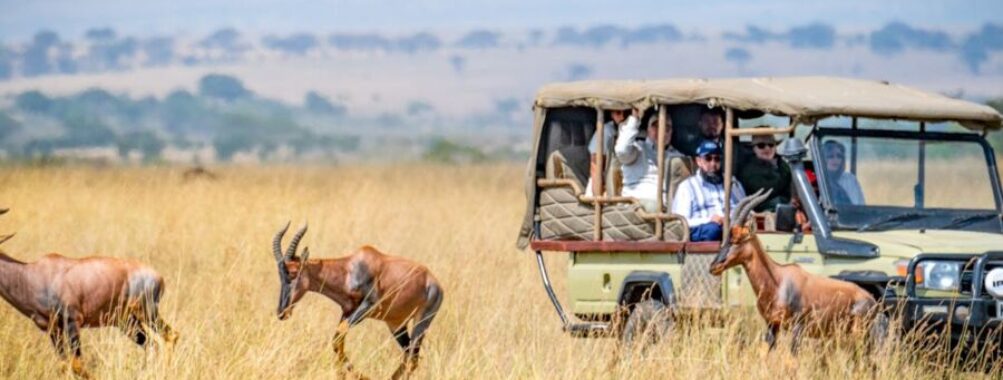
Top 8 Wildlife Safari Adventures for Responsible Travelers
Embark on a journey that goes beyond the ordinary with a responsible wildlife safari. Imagine witnessing majestic elephants roaming freely across the savannah or observing lions in their natural habitat, all while knowing your presence supports conservation efforts. Responsible safari holidays allow you to experience the wonders of Africa’s wildlife while minimizing your environmental impact and contributing positively to local communities.
You can choose eco-friendly accommodations that blend seamlessly with the landscape, using solar power and implementing water conservation measures. Many safari operators now partner with local conservation organizations, giving you the opportunity to participate in wildlife monitoring or habitat restoration projects during your trip. By selecting these thoughtful options, you’re not just a spectator but an active participant in preserving Africa’s biodiversity.
Responsible safaris also prioritize ethical wildlife encounters. You’ll learn to maintain a respectful distance from animals, understanding that observing them in their undisturbed state is the most rewarding experience. Your knowledgeable guides will share insights about animal behavior and ecosystems, enriching your understanding of the delicate balance of nature. By choosing a responsible safari, you’re creating memories that last a lifetime while ensuring future generations can enjoy these incredible experiences too.
Table of Contents
- Maasai Mara Eco-Safari (Kenya)
- Eco-Friendly Gorilla Trekking (Rwanda)
- Conservancy-Driven Safari (Botswana)
- Polar Bear Watching (Canada)
- Amazon Rainforest Exploration (Peru)
- Elephant Conservation Safari (Thailand)
- Whale Watching & Preservation (Iceland)
- Snow Leopard Tracking (India)
- Book Your Dream Experience
- More Travel Guides
Maasai Mara Eco-Safari (Kenya)
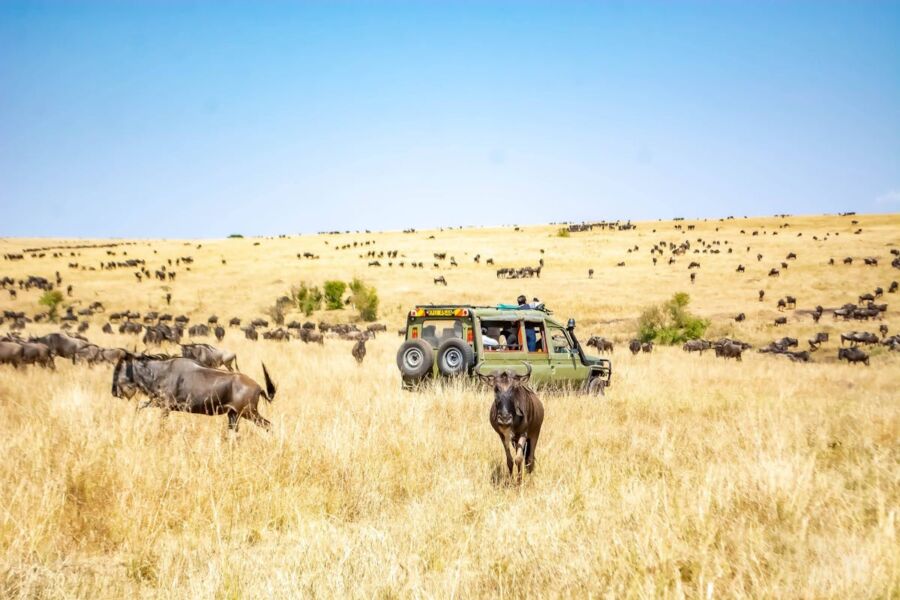
Embark on an unforgettable eco-safari in Kenya’s iconic Maasai Mara. This world-renowned wildlife sanctuary offers you a chance to witness nature’s grandeur while supporting conservation efforts.
Choose responsible tour operators committed to sustainability. Look for camps and lodges that minimize their environmental impact through solar power, water conservation, and waste reduction.
Enjoy ethical wildlife encounters that prioritize animal welfare. Observe lions, leopards, and cheetahs in their natural habitat without disturbing their behavior. Witness the breathtaking Great Migration, where millions of wildebeest and zebras thunder across the plains.
Engage with local Maasai communities through cultural experiences that respect their traditions. Many eco-friendly operators contribute to community development projects, ensuring your visit benefits local people.
Key features of responsible Maasai Mara safaris:
- Small group sizes to reduce environmental impact
- Use of electric vehicles or shared game drives
- Support for anti-poaching initiatives
- Participation in wildlife research programs
- Employment of local guides and staff
By choosing an eco-safari, you’re not just creating memories – you’re actively contributing to the preservation of this incredible ecosystem for future generations.
Eco-Friendly Gorilla Trekking (Rwanda)

Embark on an unforgettable adventure in Rwanda’s Volcanoes National Park! You can witness majestic mountain gorillas up close while supporting vital conservation efforts.
Responsible trekking practices are essential. Maintain a safe distance of at least 7 meters from the gorillas to prevent disease transmission. Keep your voice low and movements gentle to avoid disturbing these incredible creatures.
Eco-friendly lodges near the park offer sustainable accommodations. Many use solar power, rainwater harvesting, and locally-sourced materials. By staying at these lodges, you directly contribute to local communities and conservation initiatives.
Purchase your gorilla trekking permit well in advance. Fees go towards protecting gorilla habitats and supporting nearby communities. Current permit costs are:
- Foreign non-residents: $1500 per person
- Foreign residents: $500 per person
- East African citizens: $200 per person
Hire a local guide for your trek. Their expertise ensures a safe, educational experience while providing employment opportunities.
Consider joining a community tour to learn about local culture and conservation efforts. Many offer handicraft workshops or traditional dance performances, further supporting the area’s economy.
Remember to pack responsibly. Bring reusable water bottles and eco-friendly toiletries to minimize your environmental impact. Leave no trace during your trek, preserving the pristine forest for future generations.
Conservancy-Driven Safari (Botswana)
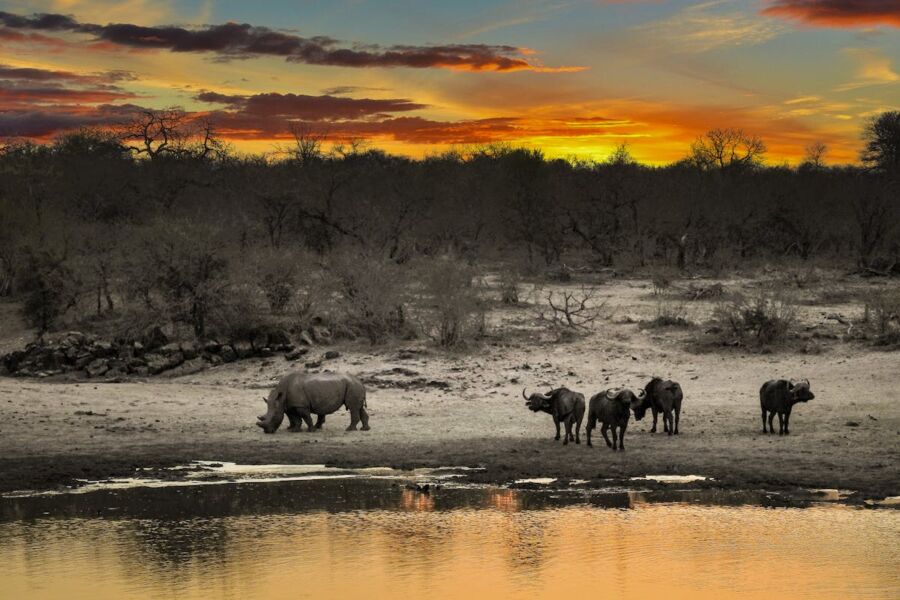
Embark on an extraordinary wildlife adventure in Botswana, where conservation and responsible tourism go hand in hand. You’ll discover pristine wilderness areas teeming with diverse species, all while supporting crucial preservation efforts.
In the Okavango Delta, your safari experience contributes directly to protecting one of Africa’s last great wildernesses. As you glide through winding waterways, keep an eye out for hippos, crocodiles, and a myriad of bird species.
Chobe National Park awaits with its impressive elephant population – over 100,000 strong! Your visit helps maintain ancient migration routes and ensures these magnificent creatures continue to thrive.
At Moremi Game Reserve, you’ll witness the results of Botswana’s commitment to wildlife conservation. Spot lions, leopards, and wild dogs in their natural habitat, knowing your presence supports ongoing protection efforts.
Botswana’s dedication to sustainable tourism means your safari fees are reinvested into conservation and community development. You’re not just observing wildlife; you’re actively contributing to its preservation.
Choose eco-friendly accommodations that minimize environmental impact. Many lodges and camps in Botswana prioritize sustainable practices, from solar power to water conservation.
Engage with local communities and learn about their connection to the land. Many conservancies partner with indigenous groups, ensuring they benefit from tourism while preserving their cultural heritage.
Polar Bear Watching (Canada)
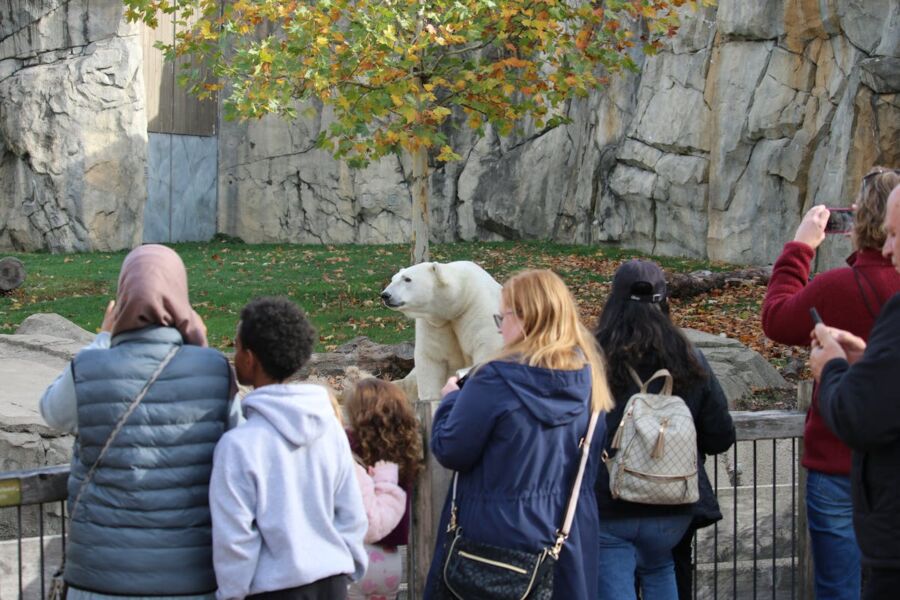
Canada offers an extraordinary opportunity to observe polar bears in their natural habitat. Churchill, Manitoba is known as the “Polar Bear Capital of the World” for good reason.
You can embark on responsible safaris that prioritize the well-being of these majestic creatures. Ethical tour operators conduct ground-level encounters, allowing you to safely view polar bears on foot.
The prime viewing season runs from October to November when bears gather along Hudson Bay’s coast. Some operators also offer summer tours to see bears amid wildflowers.
Reputable companies emphasize conservation education during your trip. You’ll learn about climate change impacts and efforts to protect polar bear populations.
Many tours utilize eco-friendly lodges powered by renewable energy. Your accommodations often showcase locally-sourced cuisine, minimizing environmental impact.
Besides bears, you may spot Arctic foxes, wolves, and various bird species. Beluga whale watching is popular in summer months.
Responsible practices to look for:
- Small group sizes
- Trained guides
- Strict viewing guidelines
- Support for local communities
- Contributions to polar bear research
By choosing an ethical operator, you can have an unforgettable wildlife experience while supporting conservation efforts.
Amazon Rainforest Exploration (Peru)
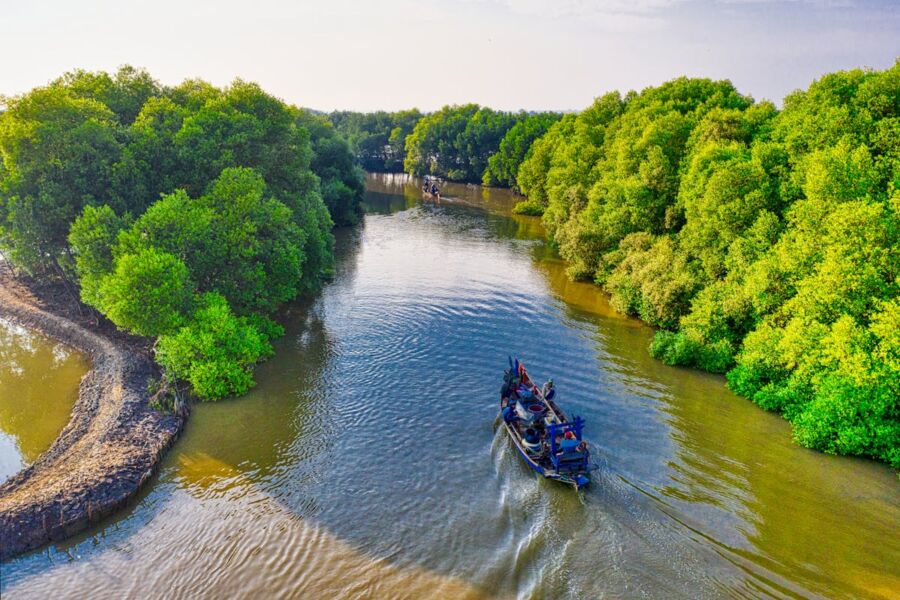
Embark on an unforgettable journey into the heart of Peru’s Amazon rainforest. You’ll discover a world teeming with extraordinary wildlife and lush biodiversity. Responsible safari operators offer immersive experiences that prioritize conservation and respect for local ecosystems.
Cruise along winding rivers like the Ucayali and Yarapa, spotting colorful macaws and playful river otters. Expert guides lead you on ethical wildlife encounters, ensuring minimal disturbance to animals in their natural habitats.
Many tours support local conservation efforts, contributing to the protection of endangered species like jaguars and giant river otters. You’ll learn about ongoing research and preservation initiatives during your adventure.
Explore the Tambopata Reserve, a hotspot for butterfly diversity. Witness the mesmerizing sight of hundreds of butterflies gathering in one place – a testament to the region’s rich biodiversity.
Sustainable lodges and eco-friendly river cruises offer comfortable accommodations while minimizing environmental impact. You’ll enjoy locally sourced meals and interact with indigenous communities, gaining insight into traditional ways of life.
Nighttime excursions reveal a different side of the jungle. Listen for the calls of nocturnal animals and search for elusive species like sloths and capybaras.
By choosing a responsible Amazon safari, you’re not just witnessing nature’s wonders – you’re actively contributing to their preservation for future generations.
Elephant Conservation Safari (Thailand)

Thailand offers a unique opportunity to experience elephant conservation up close. You can visit ethical sanctuaries that prioritize the well-being of these magnificent creatures.
One standout option is the Elephant Nature Park in Chiang Mai. Here, you’ll witness rescued elephants roaming freely in a natural habitat.
The park focuses on education and rehabilitation rather than exploitation. You can observe elephants’ natural behaviors and even assist in their care under expert guidance.
Another excellent choice is Elephant Hills in southern Thailand. This eco-friendly sanctuary provides a responsible way to interact with elephants in Khao Sok National Park.
At Elephant Hills, you can:
- Prepare nutritious meals for the elephants
- Watch them bathe in mud pools
- Learn about conservation efforts from knowledgeable guides
These sanctuaries strictly prohibit elephant riding, ensuring the animals’ comfort and dignity. Your visit supports ongoing rescue and rehabilitation programs.
By choosing an ethical elephant experience, you contribute to the protection of these endangered gentle giants. You’ll gain a deep appreciation for Thai wildlife conservation while creating unforgettable memories.
Whale Watching & Preservation (Iceland)

Iceland offers incredible opportunities for responsible whale watching. You can embark on amazing boat tours from coastal towns like Ólafsvík and Hólmavík to observe these majestic creatures in their natural habitat.
Ethical operators prioritize the whales’ wellbeing. They maintain respectful distances and limit viewing time to minimize disturbance. Many use quiet, eco-friendly vessels to reduce noise pollution and environmental impact.
You might spot minke, humpback, fin, and even blue whales in Icelandic waters. Orcas and dolphins also frequent these rich feeding grounds. Experienced captains and guides help ensure memorable sightings while protecting marine life.
Some companies contribute directly to conservation efforts. They may collect valuable data on whale populations and behaviors during tours. This information aids researchers in understanding and protecting these magnificent animals.
Sustainable practices to look for:
- Limited group sizes
- Use of low-emission boats
- Educational components on marine ecosystems
- Support for local whale research projects
By choosing responsible operators, you play a vital role in whale preservation. Your adventure not only creates lasting memories but also supports Iceland’s commitment to protecting its marine biodiversity for future generations.
Snow Leopard Tracking (India)

Embark on an extraordinary adventure tracking the elusive snow leopard in Ladakh, India. You’ll journey through breathtaking Himalayan landscapes in search of these majestic big cats.
Expert guides with decades of experience lead your expedition. They’re skilled at spotting the “grey ghost” and will teach you tracking techniques. Your presence supports local conservation efforts and helps fund anti-poaching measures.
Responsible operators offer lodge-based safaris, minimizing environmental impact. You’ll stay in comfortable accommodations while venturing out at dawn and dusk – prime times for leopard activity.
Key benefits:
- Support snow leopard conservation
- Learn from world-class trackers
- Contribute to local communities
Trips typically run from November to March when sightings are most likely. Be prepared for cold weather and moderate hiking at high altitudes.
Beyond leopards, you may spot other rare Himalayan wildlife. Blue sheep, Tibetan wolves, and golden eagles often inhabit the same rugged terrain.
Remember to follow your guide’s instructions carefully. Maintaining a respectful distance ensures both your safety and the wellbeing of these endangered cats.
By choosing a responsible safari, you’re playing a vital role in protecting snow leopards and their habitat for future generations.



